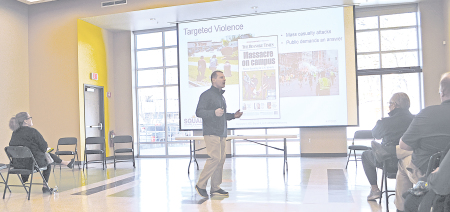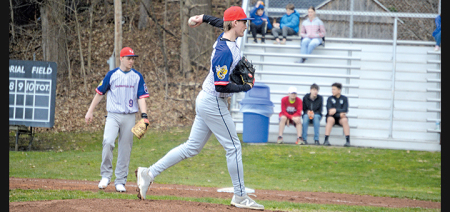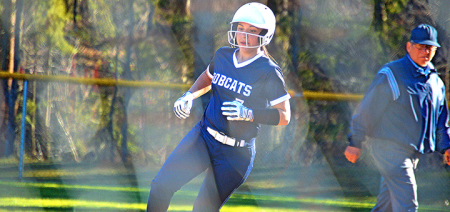Tilting At Windmills: In Defense Of Discrimination
Published:
January 12th, 2024
By:
Shelly Reuben

“The scientist … shows his intelligence, if any, by his ability to discriminate between the important and the negligible.” Hans Zinsser – 1940.
IT IS 1:15 A.M. YOU HAVE JUST ARRIVED AT THE BUS STATION IN A BIG CITY. Your cousin is supposed to meet you at the gate and take you to the airport. You enter the poorly lighted building and look around. No cousin.
The passengers who were on the bus with you have disappeared. You drag your luggage behind you, disconcerted by the grinding cacophony of the suitcase wheels along the uneven tiles of the cavernous terminal’s floor. As you approach the doors leading outside, you recoil at the greasy fingerprints left on the glass panels by derelicts and creeps.
An odd silence greets you from the street. Your eyes shift to a lone taxi driver who beckons you forward. A single eyebrow spans his forehead. His eyes are sinister. Swastikas punctuate the knuckles of both hands. He barks, “Nine dollars. Off the meter. Anywhere in the city.” Those hands are big enough to crush a coconut. Big enough to crush a skull. You think, “He will drive me to an abandoned pier, murder me, cut me into little pieces, cover me with mustard, and eat me.”
You veer away from his cab and walk north, trying to appear calm, but you are not calm. You think about Anna singing to muster her courage in THE KING AND I ... “Whenever I feel afraid. I hold my head erect. And whistle a happy tune...”
You try to swallow, but your throat is clenched like an angry fist. You can no more whistle than you can fly. At the corner, you see a sign. BUS TO AIRPORT. You turn and see a lone attendant. There is a hard, unsympathetic expression on her face, but it is a beautiful face. She is wearing a transit worker uniform, and her hands are too small to crush coconuts or skulls. “Airport bus?” She asks.
You nod. Your throat unclenches.
“Nine dollars,” she says.
You take the money from your wallet, sigh with relief, and get onto the bus.
Merriam-Webster Dictionary Definition: DIS-CRIM-I-NATE. Verb. To mark or perceive the distinguishing or peculiar features of … to distinguish by discerning or exposing differences.
By choosing to take a bus instead of a taxi, you have discriminated. By deciding to go with a female driver instead of a male, you have discriminated. By accompanying someone in a uniform as opposed to in plain-clothes, you have discriminated. By preferring a beautiful woman to an ugly man with mean eyes, you have discriminated.
DISCRIMINATING. ADJECTIVE. 2. Careful or fastidious in selection: DISCERNING.
Every action we take requires us to make choices, and every choice we make requires us to discern what is best for our survival, our safety, and our happiness. Do I take a shortcut down a dark alley, or do I walk along a busy, well-lighted street? Do I go to college to become a philosopher, or do I go to technical school to become an auto mechanic? Do I marry someone the same race and religion as I, or should I marry the man with golden eyes who makes me laugh?
“Discriminate,” like “celebrate,” is a transitive verb. Unjustifiably, however, it has acquired a negative connotation. To say, “She discriminates” means that she is evaluating and making choices. It does not tell us if those choices are good or evil. It is the same with “he celebrates.” Celebrates what? A birthday? A human sacrifice? The Birth of the Blues? The murder of Caesar on the Ides of March?
Millions of Muslims around the world “celebrated” the destruction of the Twin Towers by terrorists on September 11, 2001. Joan and David “celebrated” their 50th anniversary last week at Tavern on the Green. Regardless of what is being celebrated, we do not demonize the verb.
A freight train might carry a cargo of poisonous snakes, or containers filled with volumes of MOTHER GOOSE. Whatever the carload, however, it is not the train’s (or the verb’s) fault. The blame or praise belongs to the sender.
After Hamas raped women, slaughtered babies, and kidnapped civilians in Israel on October 7, 2023, the brilliant British writer Douglas Murray, WHO IS NOT JEWISH (I wish I had his courage) stated, “They may come for Zionists. Very well. I am a Zionist. They may keep coming for the Israelis. Very well. I am an Israeli. They may continuously come for the Jews. Very well. I’m a Jew.”
Unequivocally and vociferously, he supported Israel and decried fanatical murderers.
In response to the same incident, Claudine Gay, president of Harvard, gave supporters of Hamas a free hand to terrorize Jewish students at her college. When asked at a congressional hearing if calls for the genocide of Jews constituted harassment under university policy, Dr. Gay smugly and publically responded, “It depended on the context,” exhibiting her visceral hatred of that small percentage of those who attended her school.
Tut. Tut. Nasty lady. And, yes. She was discriminating, too.
Discrimination is neither good nor bad. It is a verb describing a means of being “discerning and judicious.” Or hateful and ridiculous. It is a fact of life.
It is in HOW we discriminate that we reveal the tapestries of our souls. When we make rational, humane and courageous choices, we can (rightly) say of ourselves that we are “discriminating individuals.” Sadly, however, when we chose to incite hatred in the name of “social justice” or vilify innocent people whom we don’t like, we are also being discriminating.
The only difference is that the more we hate and the more irrational we are, the more likely it is that we will become elected officials … or presidents of elitist universities. Not just in the United States, but everywhere in the world.
Copyright © Shelly Reuben, 2024. Shelly Reuben’s books have been nominated for Edgar, Prometheus, and Falcon awards. For more about her writing, visit www.shellyreuben.com
Author: Shelly Reuben - More From This Author
Comments








